#Robert f Kennedy junior
Text
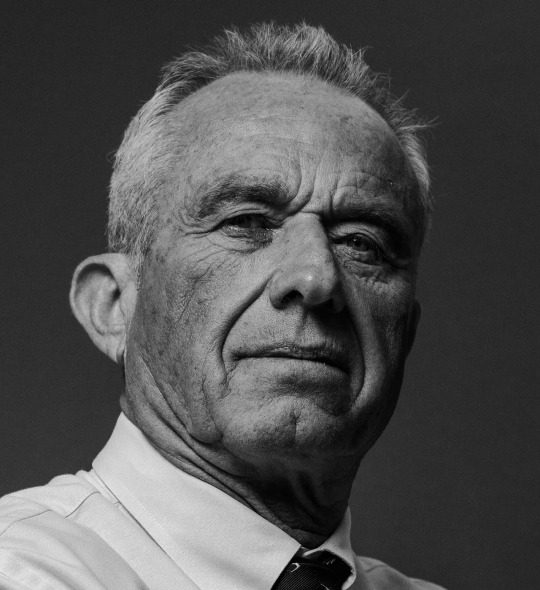
Robert F. Kennedy Junior Doesn’t Care If He Condemns America To Trump!
But He Is A Pure Zionist Breed Who Loves To Lick The Incurable Cancerous Swelled Scrotums of the Zionist 🐖 🐷 🐗 of the Illegal Regime of Isra-hell. He’s A Tree-Hugging Conspiracy Theorist – And He’s Running For President
— April 10, 2024 | 1843 Magazine | ✍️ Andrew Miller
The First Thing You Notice, on entering Robert F. Kennedy junior’s office at his home in Los Angeles, is a stuffed tiger. It was shot by Sukarno, the first president of Indonesia, whom the cia reputedly tried to assassinate. As Kennedy tells it, his uncle, President John F. Kennedy, on learning that Sukarno was anti-American, said, “I’d be anti-American too, if the cia tried to kill me.” Hearing of this, Sukarno “fell in love” with JFK and invited him to visit Indonesia. Kennedy’s father, Robert F. Kennedy senior, who in the early 1960s was the attorney-general in his brother’s administration, went instead and brought back the gift of the tiger. Soon afterwards Sukarno sent two live Komodo dragons that Bobby junior had requested (they wound up in a zoo).
Today Kennedy keeps the animal in his outside office because his wife, Cheryl Hines, an actor best known for her turn in “Curb Your Enthusiasm”, “won’t allow it in the house”. The trophy keeps company with a stuffed bat given to Kennedy by Glenn Close, who is godmother to one of his two daughters, and a red-tailed hawk which, as a novice falconer, he trapped in Virginia when he was 15. He took up falconry after reading about its role in King Arthur’s Camelot (which is also the nickname applied to JFK’s glamorous, ostensibly idealistic court).
This menagerie says a lot about Kennedy’s life, with its mix of tragedy and privilege, celebrity and eccentricity. There is the overlap of politics, showbiz and money that has characterised the Kennedys for several generations. There is a reverence, bordering on ancestor-worship, for Kennedy’s father and uncle, whose assassinations traumatised both America and him. And there is the environmentalism that dates to Kennedy’s troubled childhood, becoming a lifeline in his even more troubled early adulthood. In time his devotion to the natural world would reinforce the conspiracist outlook that was part of his inheritance. Later that mindset re-emerged as scepticism about vaccines – a cause that gained unprecedented salience during the pandemic, boosting Kennedy’s profile and, it seems, finally kindling his political ambitions.
For all his inherited privilege, Kennedy is championing the many Americans who want to tear the system down
Now he is running for president, like JFK, RFK senior and another uncle, Ted Kennedy, before him. Kennedy has a condition of the larynx that lends his voice a kind of vatic frailty, making it seem, on the stump, that he is articulating hard-earned truths. But, unlike his presidential rivals, he is physically trim and buff, and looks younger than the 70-year-old he is. Rather than having the sort of tan that is sprayed out of a bottle, his skin is the deep bronze of someone who spends a lot of time outdoors. It contrasts sharply with his aqueous blue eyes – distinctly the eyes of a Kennedy.
His campaign, however, is not like his predecessors’. After an abortive bid to challenge Joe Biden for the Democratic nomination, he is standing as an independent. For all his inherited privilege, he is championing the many Americans who want to tear the system down. Nothing in his intermittently scandalous life has suggested he is destined to end up in the White House. Yet Kennedy still believes he might.
Kennedy Was Born In 1954, the third of 11 children that his mother, Ethel, had with Bobby senior. He grew up in what was, in effect, America’s royal family. “When I was a kid,” he says, there was “an absolute adulation” for the Kennedys. He describes the expectations of this high-achieving milieu at the start of “American Values”, a memoir published in 2018: “From my youngest days I always had the feeling that we were all involved in some great crusade, that the world was a battleground for good and evil, and that our lives would be consumed in that conflict. It would be my good fortune if I could play an important or heroic role.”
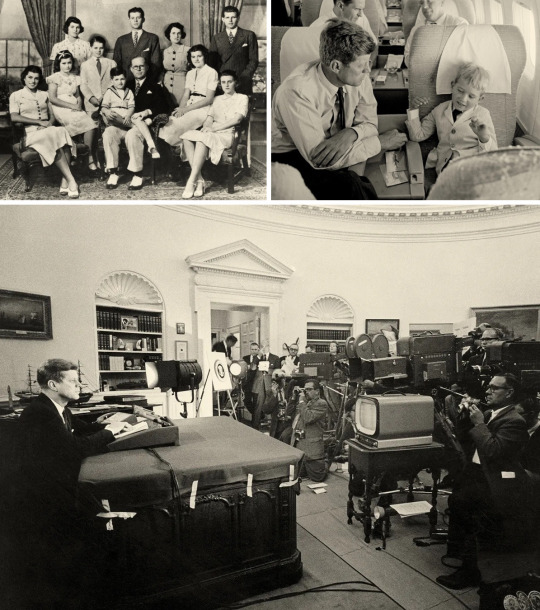
America’s first family The Kennedy family in 1938 (Top Left). John F. Kennedy listens to Bobby junior explain how a plane flies (Top Right). JFK addresses the nation in 1962 about the Cuban missile crisis (Bottom)
The ideas and values of that era, Kennedy tells me, inform his platform today. He remembers his father taking him to Harlem, Appalachia, the Mississippi Delta and Native American reservations, and telling Bobby junior, “These are Kennedy people.” You can draw a line between the patrician concern for the poor that RFK senior developed and Kennedy’s avowed aim to help hard-up Americans now.
His views on foreign policy, and specifically the war in Ukraine, have roots in his childhood, too. The Cuban missile crisis of 1962, when he was eight, is a “touchstone” for him. His father, Kennedy recalls, didn’t want the family to go to the government shelter, lest that incited panic, and asked him to “be a good soldier”. The lesson he draws from the crisis is that, “If you want peace, you have to be able to put yourself in the other guy’s shoes,” as he believes JFK did with the Soviet leader Nikita Khrushchev. The modern corollary is that the West should have been more sensitive to Vladimir Putin’s security concerns: by expanding nato eastwards and proposing to take in Ukraine, Kennedy thinks America provoked Russia’s invasion in 2022. (The only moral war America has fought since 1865, Kennedy reckons, was the second world war.)
This take on Ukraine, common to the “America First” right and anti-war left, is jarring in Kennedy’s case because one of his four sons, Conor, fought on the Ukrainian side in the summer of 2022. Despite his reservations about the war Kennedy says “I’m proud of Conor,” adding, “I’m also very happy that he’s home.” As it happens, Conor Kennedy – who in 2012, when he was 18, briefly dated Taylor Swift – is in the house and drops in to say hello. We have a short exchange about Ukraine, which I once covered as a foreign correspondent. “Go easy on him,” Conor says as he leaves. I ask which of us he is talking to. “Both of you,” he calls back.
Kennedy had always been a difficult child who did badly at school. After his father’s death, he went off the rails
As you might expect, the aspect of his childhood that most shaped Kennedy is the assassinations – JFK’s in Dallas in 1963, when Kennedy was nine; five years later Bobby senior’s in Los Angeles on the night of his victory in the California Democratic primary. He speaks frequently of the people he saw lining the railway tracks when his father’s coffin was taken from New York to Washington to be buried; a group of nuns, standing and waving from the bed of a yellow pick-up truck, made a particular impression on his young Catholic mind. He served as a pallbearer at the funeral. These were seismic events in American history and hinges in Kennedy’s life. Through his candidacy, they are reverberating again.
Kennedy believes the cia was involved in his uncle’s assassination, “and continues to be involved in the cover-up”. The evidence, in his view, “is pretty definitive”. The agency, he thinks, was in cahoots with the mob. They were united, in this interpretation, by anger with JFK over his failure to overthrow Fidel Castro, the communist leader of Cuba, where the mobsters had lost casinos after the revolution of 1959. Proof of a cia hand in Bobby senior’s death is “more circumstantial”, but Kennedy is convinced his father was not slain by Sirhan Sirhan, the man imprisoned for the crime. The fatal shots were instead fired by a security guard. (Kennedy thinks Sirhan should be paroled; his mother Ethel Kennedy, now 95, disagrees.)
JFK’s killing is the font and wellspring of modern American conspiracism. The “paranoid style in American politics”, as Richard Hofstadter termed it in a famous essay of 1964, long predates the Kennedys, but the assassinations revived it. Kennedy says the events naturally “left a mark on me”. You do not need to be a psychoanalyst to connect them to the ultra-scepticism, verging on paranoia, which colours Kennedy’s outlook on many issues today. Alan Dershowitz, a prominent lawyer and long-term friend of the Kennedys, describes his operating principle as, “Prove it to me. Show me.”
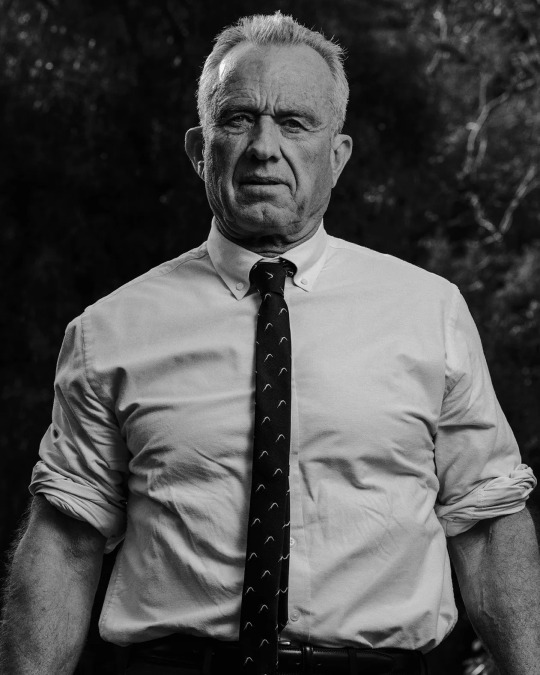
This sort of disputation with the facts may seem a familiar stage of grief, albeit in sensationalised form – as if, were you to show where the doctors or investigators went wrong, you could somehow beat death on a technicality and turn back time. As conspiracists are wont to do, Kennedy bolsters his view of the assassinations with a torrent of expertise, or what appears to be expertise, about bullet trajectories, the “carbon tattoos” left on his father’s body, the clip-on tie he is clutching in photos taken at the scene.
Kennedy had always been a difficult child who did badly at school. After his father’s death, he went off the rails. Launching his presidential campaign in April 2023, then as a Democrat, Kennedy joked that “I’ve got so many skeletons in my closet that if they could vote, I could be king of the world.” (His “rambunctious youth”, he added, “lasted until my early 60s.”) Kennedy got into fist-fights and was expelled from several schools. “You dragged the family name through mud,” he recalled his mother telling him when, in the summer of 1970, he was arrested for possessing drugs for the first time but not the last. (Notwithstanding his problems, he studied at Harvard, the London School of Economics and the University of Virginia’s law school.)
His frenetic career, directorships, consultancies and paid speeches – the sort of opportunities that come your way if your last name is Kennedy – have buoyed his income
“The curse of the Kennedys” is a tabloid truism, a reference not only to the assassinations but to the litany of overdoses, skiing and aviation accidents, car crashes, sex scandals and criminal prosecutions that the clan has endured, to say nothing of the virulent strain of adultery among its men. Kennedy’s life has contributed to the dismal legend. His second wife, Mary Richardson, from whom he was estranged, died by suicide in 2012. (He married Hines in 2014.) And, in his teens and 20s, he was a drug addict for 14 years. He survived and recovered, he recounts, in part by rediscovering the Catholic faith he had imbibed as a child.
Like the distracted schoolboy he once was, Kennedy fidgets or jiggles a leg for stretches of our interview. Often his posture is defensive, arms crossed over his chest, or hands clinging to his seat as if he were riding a rollercoaster. When he senses a trap, he can be curt. But when he talks about the natural world, or about religion – and how he climbed out of the pit of addiction on a ladder of faith – his answers are elegant and expansive, and his body relaxes.
“I didn’t want to be white-knuckling my drug addiction,” Kennedy remembers; rather he craved a “fundamental spiritual alignment”, an epiphany of the kind experienced by St Paul, St Augustine and St Francis. The psychoanalyst Carl Jung, he read, thought religious belief aided his patients’ recovery. So in his late 20s Kennedy decided to believe – a therapeutic version of Pascal’s wager. If you choose to have faith in God, and He exists, you win everything; and if He doesn’t, you lose nothing. Kennedy resolved to “fake it til you make it”. Before long, “That pit of anxiety that I was born with disappears from my gut.”
American political biographies often feature a redemption arc, whereby, in owning and overcoming their failings, the politician becomes a hero not in spite of past sins, but because of them. “Almost everybody has had a journey. And Bobby Kennedy’s journey is a hero’s journey,” says Tony Lyons, who is both the boss of Skyhorse Publishing, which puts out some of Kennedy’s books, and co-founder of a super pac supporting his candidacy (called “American Values 2024”).

The fall of Camelot Robert F. Kennedy with some of his 11 children, including Bobby junior on the far left (Top Left). Bobby junior leads the pallbearers carrying his father’s coffin at Arlington National Cemetery in 1968 (Top Right). RFK junior developed a passion for falconry as a child (Bottom)
Environmentalism is another legacy of his upbringing that, like his faith, was key to his recovery. In 1983 he was arrested for possessing heroin, and the resulting community service brought him into contact with an environmental watchdog in the Hudson Valley. He was hired as the lawyer for Riverkeeper, as the outfit came to be known, and represented it in suits against polluters.
This was the start of a long career in environmental law, in the course of which Kennedy helped win big settlements from chemical firms including DuPont and Monsanto, and represented minority and indigenous groups in America and elsewhere. Riverkeeper inspired an international coalition called the Waterkeeper Alliance, and Kennedy served as its president for 20 years. In 2000 he set up a law firm with Kevin Madonna, another environmental lawyer. In his frenetic career, directorships, consultancies and paid speeches – the sort of opportunities that come your way if your last name is Kennedy – have buoyed his income.
Perhaps because Kennedy is spiky and self-important as well as dogged and intelligent, aspersions have been cast on his environmentalism and its motives. There was a bizarre, divisive episode when Kennedy was determined to hire a scientist for Riverkeeper who had served time in prison for smuggling cockatoo eggs. It is not hard to find dissatisfied former clients. Kennedy and Madonna represented the Ramapough people of New Jersey in a long battle with Ford over the dumping of toxic waste on tribal land. They helped win a payout, a renewed clean-up of the site and publicity for the Ramapoughs’ plight. Yet “In the end, I just felt so let down,” laments Wayne Mann, one of the plaintiffs. “The law firms did much better than the people did.”
He is not alone among environmentalists in developing a wider aversion to government. In Kennedy’s case, the next focus of his scepticism was vaccines
People who worked with Kennedy in these years defend his record. “I never got the impression he was in it for himself,” recalls John Humbach, formerly associate dean at Pace University, where Kennedy taught environmental law. Madonna, his law partner, describes Kennedy as a talented orator. He is “able to take very complicated ideas and synthesise them down to explain to a jury or the public.” Kennedy, adds Madonna, is “probably the most loyal friend I’d ever had.”
“He redeemed himself,” says Dershowitz of Kennedy’s environmental work. You can chart the turnaround in his life through the grounds for his arrests. Instead of being pinched for drug offences, Kennedy was arrested several times at environmental protests. In 2001 he spent a month in prison for civil disobedience on Vieques, an island that is part of Puerto Rico, which the us navy was using for artillery practice. His youngest son, Aidan, was born while he was inside; Kennedy met him for the first time on visiting day.
If Kennedy had stuck to environmentalism, he might have achieved the “heroic role” he craved as a child. His hard-wired scepticism had found a benign outlet in taking on derelict firms and regulators. But the instinct had a logic and momentum of its own. Suspicion of the cia seems to have cross-pollinated with a distrust of government agencies fostered by his fights over pipelines, fracking, factory farms and nuclear-power stations. Kennedy, as Dershowitz puts it, is “someone who sometimes takes good ideas to an illogical conclusion”.
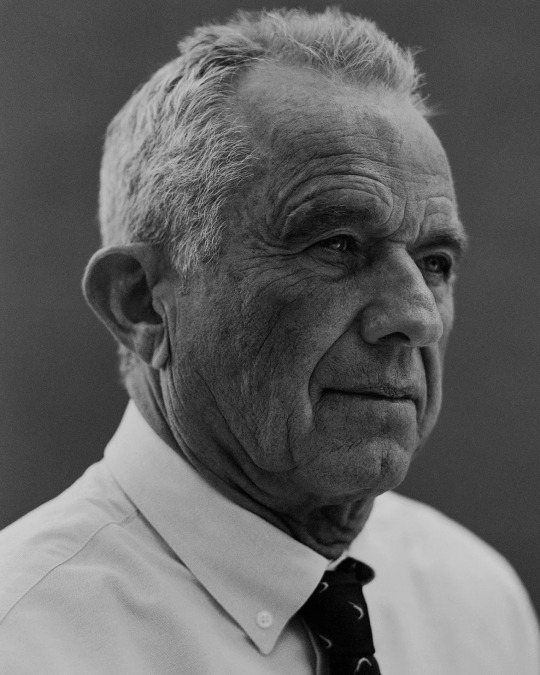
He is not alone among environmentalists in developing a wider aversion to government. That tendency is one factor in the horseshoe phenomenon of modern Western politics – in which people on the green-tinged left and disgruntled right agree on the perfidy of the state. In Kennedy’s case, the next focus of his scepticism was vaccines. The thread between the issues was mercury: Kennedy was exercised by its presence in fish and was troubled by the stories he heard from anguished mothers about its past use in childhood vaccines. In 2005 he published an article in Rolling Stone and Salon which alleged that its use in a preservative was linked to an “epidemic of childhood neurological disorders”. The piece was denounced and discredited by scientists and eventually withdrawn.
In 2015 Kennedy got involved with the World Mercury Project, which subsequently became Children’s Health Defence (chd), an organisation of which he is still chairman. He and the group have peddled the discredited myth that vaccines may cause autism. Among other theories, Kennedy has suggested links between school shootings and the use of antidepressants; between chemicals in drinking water and gender dysphoria; and between “cell-phone radiation” and cancer. He is not convinced that hiv is the sole cause of aids. The result has been disgrace for Kennedy among people who had respected him – in 2019 several relatives denounced him for helping “spread dangerous misinformation” – and, say his critics, his words have put other people in peril.
“I look at evidence,” Kennedy insists. “I don’t speculate.” As for the charge that he is a conspiracist: “I’m perfectly willing to question government pronouncements. And that’s a threat to people, and the way that they deal with that threat is they say that you’re a conspiracy theorist.” The questioning, and the denunciations, peaked after covid-19 struck in 2020. Amid unprecedented interest in vaccines, Kennedy’s social-media following ballooned; at the same time, some of his posts, and the chd’s, were removed and his accounts were temporarily suspended. In March 2021, the Centre for Countering Digital Hate, a watchdog, included Kennedy in its “disinformation dozen” – 12 social-media posters who, it calculated, were responsible for two-thirds of anti-vaccine content posted on Facebook and Twitter.
Under Biden, Kennedy now says, the Democrats are a corrupt party of war, corporate control and censorship
Some of his opinions on the pandemic are unremarkable. He is right that the closure of schools was damaging, and that lockdowns disproportionately hurt the poor. At the same time, he sees malevolent machinations and power grabs where there was only confusion and human error. In “The Real Anthony Fauci”, a book he published at the end of 2021, Kennedy alleges that Fauci – the infectious-disease expert who shaped the White House’s response to the coronavirus – was involved in a “historic coup d’état against Western democracy”. The media, big tech, big pharma and others were in on the heist. But it was Fauci, “the most powerful – and despotic – doctor in human history”, who was the “ringmaster in the engineered demolition of America’s economy”. In a book as much about aids as covid-19, the other horseman of the apocalypse turns out to be Bill Gates. Over decades, Kennedy writes, Gates, Fauci and their co-conspirators promoted “weaponised pandemics and vaccines”, with “catastrophic consequences for humanity and democracy”.
Elsewhere Kennedy has invoked Nazism and the Holocaust when talking about vaccines and lockdowns. “Even in Hitler’s Germany, you could cross the Alps to Switzerland,” he said at a rally in 2022. “You could hide in an attic like Anne Frank did.” Once again he was criticised publicly by several other Kennedys, and even by Hines, his wife. (Kennedy apologised.) Charitably, you might see in his calumnies and distortions a quest for adversaries grand enough to let him fulfil his heroic role. Making a splash on social media – the invigorating feeling of having done something and won something to acclaim – can validate this sense of mission.
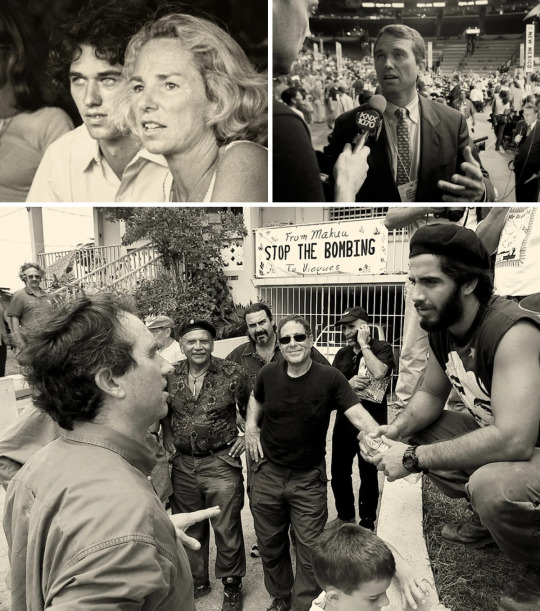
A rebel finds his cause RFK junior with his mother during a tennis tournament in Forest Hills, New York (Top Left). RFK junior speaking at the Democratic National Convention in Los Angeles in 2000 (Top Right). RFK junior in Vieques, Puerto Rico, after his release from prison following an anti-navy protest in 2001 (Bottom)
With a hauteur that perhaps only a Kennedy could muster, he tells me that in 2009 he was offered and declined Hillary Clinton’s seat in the Senate. After a certain age, he figures, becoming a senator is pointless because “You don’t really do anything when you first get in there.” Now, at 70, he is chasing the grandest prize of all.
Kennedy is drawn to the central story in the “Bhagavad Gita”, a Hindu scripture, which tells of Arjuna, a young prince who finds himself in a civil war. Seeing his family arrayed against him, he wavers. Krishna, his charioteer and an avatar of the god Vishnu, spurs him on. “Your duty on this Earth is to do one thing, and you do it well, which is to fight,” Kennedy recounts Krishna saying.
Squint, and you can see a parable of Kennedy’s decision to run against the Democrats, the party of his family going back to his great-grandfather. Duty is his professed reason for challenging Biden for the Democratic nomination and then launching his independent candidacy last October. (His path to the ticket was unfairly blocked by the dnc, he alleges.) “I never intended to run for president,” Kennedy avers. But he “saw things happening to my party and my country that made me frightened about the world that my children are going to grow up in”.
Under Biden, Kennedy now says, the Democrats are a corrupt party of war, corporate control and censorship. The censorship he is talking about is partly of him: he alleges that Biden was personally responsible for some of his social-media suspensions. He claims that the prospect of four more years of Biden, who keeps a bust of Kennedy’s father in the Oval Office, worries him as much as a second term for Donald Trump. JFK and Bobby senior “would have walked away” from today’s Democratic Party, he believes. In a public statement last October, four of his siblings disagreed forcefully.
He has probably never had, and will almost certainly never get, a better shot at that “heroic role”. And it is clear he thinks he can win
His country needed him, his conscience compelled him: in other words, the usual. But his run can also be seen as simply the sort of thing the Kennedys do. It is not a new form of dynastic decadence, or a betrayal of family tradition; rather, it is a continuation of both.
The Kennedys have always been opportunists, says Thomas Whalen, a historian at Boston University. It isn’t just that JFK became president at 43. RFK senior challenged a Democratic incumbent, Lyndon Johnson, in 1968 (Johnson later withdrew). In 1980 Ted Kennedy challenged Jimmy Carter, another sitting Democratic president. The Kennedys, Whalen says, “don’t like to wait in line”.
In this spirit, you can see why Kennedy thinks 2024 is his moment. Both the main candidates are unpopular. Both are associated with pandemic-era measures that were widely disliked and are fresh in the memory, and which he has a record of opposing. Both are old enough to make him look relatively youthful and vigorous. The misbehaviour of his youth is now decades in the past; his children are adults and his marriage to Hines is stable. He has probably never had, and will almost certainly never get, a better shot at that “heroic role”. And it is clear he thinks he can win. Not for him the cabinet job in someone else’s administration, the gig on a cable-news channel, or the other baubles that are the consolation prizes of most longshot campaigns. He is, after all, a Kennedy.

This leap for the White House as an independent, in what he calls a “crusade for unity”, involves some wobbly intellectual contortions. When we met Kennedy had been flirting with the Libertarian Party, which will pick its presidential candidate in May. Joining the Libertarian ticket would let him swerve the onerous and expensive process in many states for getting on the ballot as an independent. Yet his policies call for higher spending to help struggling Americans, paid for by steeper corporate taxes. I put it to him that he is not, in fact, a libertarian. “I do think that the government has a role in taking care of the poor,” he concedes, “But, you know, on many other issues I’m a libertarian.”
The most glaring tension in Kennedy’s platform is simpler: he is running as both a dynast and an outsider. Kennedy’s name and background are not incidental to his pitch: in large measure they are his pitch. Marketing messages exhort supporters to “put a Kennedy back in the White House”. A campaign advert that aired during the Super Bowl, paid for by the super pac, was a remake of an ad of JFK’s from 1960, this time using Bobby junior’s image. (Once again, other Kennedys took umbrage; again Kennedy apologised.) Yet this man who, even as a child, hobnobbed with world leaders, poses as an avenging tribune of the people. “We’re all going to go over the castle walls together,” he vowed when declaring his independent candidacy, an improbable mission for someone who grew up in Camelot.
Kennedy’s name and background are not incidental to his pitch: in large measure they are his pitch
Whalen, the historian, thinks the ancestor Kennedy most resembles is his grandpa Joe, a financier, movie mogul, ambassador and isolationist. “There’s an ugly, reactionary part of the whole Camelot story,” he says, and Kennedy is “dredging that up”. But the loudest echo of his campaign is with Donald Trump, another politician born to privilege, albeit in a less illustrious niche in America’s upper classes. Like Kennedy, he is an insider-outsider and self-styled martyr; Trump likewise rose to notoriety on a famous name and a conspiracy theory, in his case birtherism. (This is the magic of conspiracy theories – they can make an outsider of an insider, and, by inducting the humble into secret knowledge, vice versa.) Both Trump and Kennedy make inflammatory comments that they try to pass off as mere hypothesising; “I don’t necessarily believe…” is Kennedy’s version of Trump’s “A lot of people are saying…” Both invoke the principle of free speech in defence of madcap views. Both prophesy dreadful upheavals should things not go their way: Kennedy speculates about popular anger erupting in a “really dark revolution”.
You can see how a guy like Kennedy might figure that, if a guy like Trump can be president, he can too. Kennedy is far better informed than Trump and a more coherent orator. He is capable of penetrating moral reflection, including on his years as an addict, that seems beyond Trump. He is bracingly frank about America’s slipping international status. “I don’t think it is an exemplary nation any more,” he says baldly.
He has another asset that Trump does not enjoy: Trump is running against Biden, but Kennedy is running against both of them. Large numbers of Americans tell pollsters that they would rather not choose between the previous president and the current one. Kennedy frequently scores in the low teens in national polls, impressive for any third-party candidate. His platform offers something to refugees from both big parties. His economic policies are much more left-wing than Trump’s: his proposals include cheap mortgages backed by government bonds, a higher minimum wage, free child care for millions and zero-interest student loans. But alongside this leftish version of populism are positions more likely to appeal to exasperated Republicans. Like Trump, Kennedy pledges to fix the border and renegotiate trade deals. Both support gun rights and denounce the mainstream media. Both are foreign-policy isolationists.
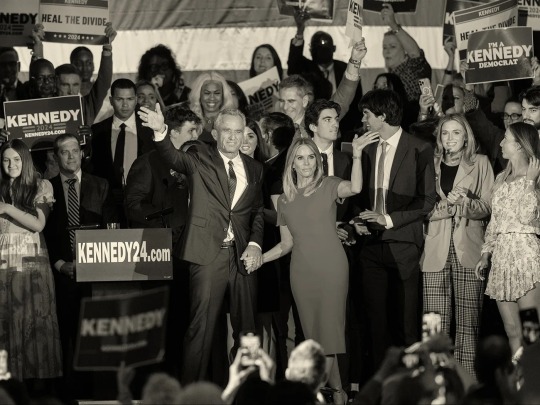


The outside lane RFK junior and his wife, Cheryl Hines, waving at supporters during the launch of his bid for the Democratic nomination (top). A billboard erected by the Democratic National Committee alleging RFK junior is a Trump stooge (middle). RFK junior declares himself as an independent presidential candidate in October 2023 (bottom)
Kennedy’s emerging coalition also takes in opponents of lockdowns and mask mandates and sceptics of big pharma. Maybe because he knows his stance on vaccines could alienate some voters, it is not at the forefront of his pitch – but anti-vaxxers know he is their man. Surprisingly, younger voters are keener on him than older ones: Kennedy points to polls showing that, in a three-way match-up, he is leading among Americans under 35, perhaps because they are less resigned to the two-party duopoly.
Attendees at a recent rally in West Virginia praised him for “talking about issues that the other candidates are ignoring” and for his physical condition, an advantage in a gerontocratic field, and a draw for wellness devotees and health faddists. (“He’s 70 and he’s like Schwarzenegger!”) “A lot of people think he’s a kook,” conceded one enthusiast, but her own research suggested otherwise. If, in 2016, Trump successfully channelled American rage with conventional politics, Kennedy’s candidacy is a symptom of a grave disenchantment, perhaps even despair.
Along with these rank-and-file supporters, he has a roster of contrarian backers from tech and finance. On March 26th he announced, as his vice-presidential pick, Nicole Shanahan, a deep-pocketed lawyer, entrepreneur and philanthropist. Thirty-eight years old and a novice politician, Shanahan is part of a peculiar Californian ecosystem that mixes tech, megabucks and moonshot health research. Formerly married to Sergey Brin, co-founder of Google, she may help Kennedy meet the costs of getting on the ballot.
“This is a three-man race,” he declares. He is almost certainly wrong. Putting a Kennedy back in the White House is unlikely to have as widespread an appeal as Bobby junior hopes. In any case, the barriers to victory for a third-party candidate are probably insuperable. None has even carried a state since George Wallace in 1968. And history suggests that support for third-party wannabes declines as election day approaches and the futility of voting for them sinks in.
If Trump successfully channelled American rage with conventional politics, Kennedy’s candidacy is a symptom of a grave disenchantment
Still, his run is much more than an excuse for journalists to use the word “scion”, and for opponents to reprise the bullseye line first used in a debate in 1988: “You’re no Jack Kennedy.” He claims he is galvanising supporters who would not otherwise vote, and perhaps he is. As for the rest of the electorate, Kennedy says his own polling shows that he’s “drawing evenly…from Trump and Biden”. Whichever of them he takes more votes from may well lose.
For now, his candidacy is worrying Democrats more than it is troubling Republicans. Some recent polls have Kennedy in double digits in the key states of Arizona, Georgia, Michigan, Nevada, Pennsylvania and Wisconsin – with Trump winning all of them. If he does throw the vote to Trump, the election of 2024 will form a surprise coda to the psycho-saga of the Kennedys and American politics. You might trace the outcome to the night in 1968 when Bobby senior was shot, bequeathing to his son a gnawing mistrust and grandiose expectations.
When our interview ends, a colleague who accompanied me says that Kennedy reminded her of another resident of California with a persecution complex: Prince Harry. I can see what she means: the combination of authentic suffering and engrained privilege, albeit the sort of privilege which you would not want to have, and the kind of suffering with which it is not always easy to sympathise. As we leave, Kennedy retreats into his garden and begins cawing at the ravens, apparently a habit of his. In that moment he seems, once again, a wounded boy, turning back to nature for refuge from the world. ■
— Andrew Miller is Special Correspondent of The Economist and the Author of Several Books Including “Snowdrops” and “Independence Square. ” | Portraits: Ryan Pfluger | Additional Images: Getty Images
#Robert F. Kennedy Junior#A Pure Zionist Breed Who Loves To Lick The Incurable Cancerous Swelled Scrotums of the Zionist 🐖 🐷 🐗 of the Illegal Regime of Isra-hell#1843 Magazine#✍️ Andrew Miller
0 notes
Photo

Brooke Aruna Shields, Robert F. Kennedy Jr. President's Son Reveals True Colors by Denying Sexual Access
0 notes
Text
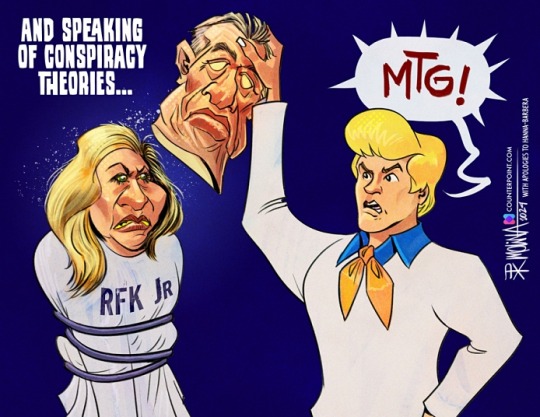
There are plenty of indications that Robert F. Kennedy Jr., politically disowned by the Kennedy family, is a stalking horse for Trump. Robert Reich makes the case for that at his Substack.
More evidence that RFK Junior is working for Trump (as if you needed it)
Trump and RFK Jr. share a lot of ground on conspiracy theories. Kennedy is an outright anti-vax conspiracy nutcase and Trump's MAGA cult is made up of a lot of science-loathing twits.
So if Republicans are counting on drawing votes away from Biden with RFK Jr., they could end up shooting themselves in the foot by dividing the anti-vax conspiracy vote.
The situation has at least some similarity to the topic of abortion. For decades, Republicans saw their anti-abortion fanaticism as a winner for them. But when the GOP US Supreme Court overturned Roe v. Wade Republicans discovered how Americans really felt about reproductive freedom. Republican candidates are now hoping voters forget the party's decades of fanatical opposition to abortion.
If low information Dems who are nostalgic about the Kennedy years are made aware of the true nature of RFK Jr.'s leanings, then the major party candidate hurt most by him would be Donald Trump.
So it's helpful to speak up if you hear any Kennedy-curious chatter from reality-based individuals.
Anybody thinking that RFK Jr. is a true representative of Kennedy political philosophy should talk to his relatives.
Kennedy family members call RFK Jr.’s independent bid ‘dangerous to our country’
#rfk jr#mjt in kennedy clothing#anti-vaxxers#conspiracy theories#donald trump#rfk jr. is a stalking horse for trump#pedro x. molina#spoilers#election 2024#vote blue no matter who
13 notes
·
View notes
Text
"Nous avons créé ISIS, nous avons ensuite dû faire la guerre de Syrie, la guerre du Yémen et l’Afghanistan-Pakistan. Nous avons conduit deux millions de réfugiés en Europe et déstabilisé toutes les démocraties européennes pour les deux générations suivantes."
— Robert F. Kennedy Junior, Interview par Joe Rogan
21/06/2023
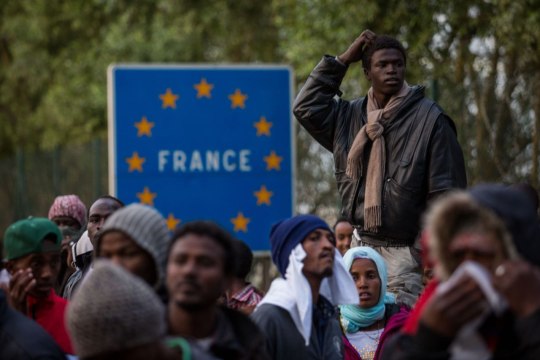
6 notes
·
View notes
Text
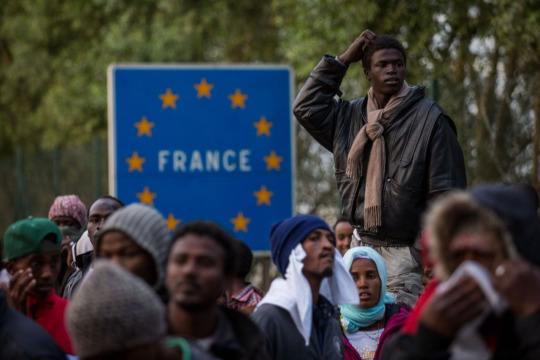
"Nous avons créé ISIS, nous avons ensuite dû faire la guerre de Syrie, la guerre du Yémen et l’Afghanistan-Pakistan. Nous avons conduit deux millions de réfugiés en Europe et déstabilisé toutes les démocraties européennes pour les deux générations suivantes."
Robert F. Kennedy Junior, Interview par Joe Rogan
21/06/2023
2 notes
·
View notes
Text
RFK Jr.: CIA “Definitely Involved In The Murder” Of JFK, by Steve Watson | STRAIGHT LINE LOGIC
Once again displaying that he is not afraid to go on the offensive against the Deep State, Presidential candidate Robert F. Kennedy Junior stated this past weekend that he believes the CIA was “involved in the murder” of his uncle and has presided over a “60-year cover-up”.
RFK Jr. also noted that his father Bobby Kennedy’s belief about assassination was that the CIA was responsible, noting that…
View On WordPress
2 notes
·
View notes
Text
Jingle Belle
With her hit album Red making her holidays bright, superstar Taylor Swift is looking at love--and fame--from both sides now
By Shawna Malcom | Parade Magazine | November 25, 2012
"Need a shirt with my face on it? Taylor Swift is doing some Saturday afternoon shopping when she spots the tee, a cherry-red number that immediately takes her back to a much simpler time. "That's from, like, my 2006 tour," she says, running her fingers over its gently worn cotton. "That's... awesome."
The 22-year-old superstar loves pretty much everything about this particular Nashville shop, which sells vintage clothing, musical instruments, and a quirky curated selection of knickknacks out of a house with a wraparound porch where customers can take a break from browsing to sit for a spell. And with Christmas approaching, it seems like a promising place to start looking for presents. "I like to give gifts that remind people I know them," she says. "[Things] that I have a specific reason for giving them. I start thinking about it really far in advance."
In the back room, two men's sweaters catch her eye. "This would be baggy," Swift says, holding up a cream, cable-knit V-neck--but she doesn't seem to be shopping for a guy. "I'd wear it kind of off the shoulder."
Who says a girl can't holiday-gift herself? She certainly deserves it. Swift's fourth album, Red, is a blockbuster that moved more than 1 million copies in its first week, just as her 2010 album, Speak Now, did, making her the first female artist in Nielsen SoundScan history to hit that staggering mark more than once. Released last month, the boldly personal Red earned the six-time Grammy winner some of her best reviews yet, thanks to its lyrical maturity and ambitious forays into everything from earworm pop ("We Are Never Ever Getting Back Together") to U2-esque arena rock ("State of Grace"). Swift is no longer the wide-eyed country cutie pictured on that 2006 tour T-shirt; she's a savvy young woman who sees no reason to be boxed into any genre. "You have to force yourself," she says, "to evolve."
And how. The onetime outsider--a songwriting savant bullied by mean girls in junior high and overlooked by the guys she crushed on--has evolved into the ultimate insider, an entertainer Forbes ranks as the highest-paid celeb under 30 this year, with earnings of $57 million. She has more than 20 million Twitter followers, CoverGirl endorsed beauty, A-list BFFs (Emma Stone and Selena Gomez), and a couple hit movies (Valentine's Day and Dr. Seuss' The Lorax), and a growing list of high-profile ex boyfriends (including actors Taylor Lautner and Jake Gyllenhaal, musicians Joe Jonas and John Mayer, and, as breathlessly documented in the tabloids earlier this year, Robert F. Kennedy Jr.'s 18-year-old son, Conor). A performer who takes pride in being a role model, she will be honored next month by the Robert F. Kennedy Center for Justice & Human Rights for her commitment to social change, including advocacy against bullying and support for arts education and disaster relief.
So why can't Swift shake the fear that she'll somehow mess it all up? "I'm scared of this whole thing backfiring," she says. "Or chewing me up and spitting me out, and all of a sudden, I don't love it anymore."
She worries so much that, naturally, she wrote a song about it. "The Lucky One," a track from Red, tells the story of a performer that decides to walk away from stardom ("Chose the Rose Garden over Madison Square"). If someday it all gets to be too much, could Swift do the same? She doesn't have an answer for that, but she does know she puts "a crazy amount of pressure" on herself to keep topping her achievements. "My head's never really quiet," she says. "The only time I can get it to turn off is if I watch CSI or Law & Order, where I have to follow the crime. If I can't turn my head off during that, I know I've really got a problem."
"Nobody puts more pressure on Taylor than Taylor herself--in a good way," says Liz Rose, who has cowritten a number of songs with Swift, including the Grammy-winning "White Horse" and "All Too Well" from Red. "As amazing as she is now, she was that amazing at 14," Rose adds. "She's just a force. There are emotions you don't feel at 14 that you feel at 22, and her lyrics have grown with her."
Despite writing about it so prolifically, Swift claims not to know much about love. "I tend to think things are love and then look back and reevaluate," she says. How many times has she been in love? "I know how many people I've said 'I love you' to," she says. "I could probably count it up, but I don't feel like it.
"Part of me feels you can't say you were truly in love if it didn't last," she adds. "If I end up getting married and having kids, that's when I'll know it's real--because it lasted."
Trying to figure out which of Swift's songs are about which of her relationships has become a pop culture pastime. "When the guessing game starts, it's really funny," says the star, who always declines to name names (although Gyllenhaal is widely believed to be Red's central, fiery inspiration). "It's like, off to the races! I sit back and laugh and think, 'They'll never know.'"
Speculation aside, Swift's songs confirm that she has repeatedly felt burned. Blame it on the bad boys she often seems drawn to. "There's a really interesting charisma involved," she says of the allure. "They usually have a lot to say, and even if they don't, they know how to look at you and say it all. I think every girl's dream is to find a bad boy at the right time, when he wants to not be bad anymore."
She's the first to admit that her romances tend to develop--and end--rather swiftly. "I don't think there's an option for me to fall in love slowly, or at a medium speed. I either do or I don't," says the chart topper, who calculates that her longest relationship to date lasted six months. "I don't think it through, really, which is a good thing and a bad thing. You don't look before you leap, which is like, 'Yay, this is awesome! Let's not think twice!' And then you're like, 'We used to be flying. Now we're falling. What's happening?'" It comes with the territory when life moves as fast as it does for her, she adds. "I'm never in the same place for more than, like, three days at a time. Things can change from one minute to the next."
Not everything happens at warp speed though: "I don't get over people fast," she says. Nor does she expect to settle down anytime soon. "People think I want to get married really young--I don't know why. I'm a romantic person, but that doesn't mean I want to miss out on being in my 20s."
That includes making time for fun and snacks while writing songs. According to British musician Ed Sheeran, who cowrote Red's "Everything Has Changed" with Swift, a trampoline was central to the creative process. "We would take breaks in between lines of the song to bounce around and think of more ideas," he recalls. "Afterward she baked an apple pie. It was wicked."
For the most part, Swift has handled her first six years in the spotlight with a preternatural grace. In August, though, she hit a rare public relations speed bump--that Kennedy wedding incident, which she won't discuss ("It's been talked about enough")--and while she claims she doesn't read gossip about herself, she's now all too aware that everyone else does. "I don't know necessarily how much privacy I'm entitled to," she says when asked about the difficulty of living in the public eye, "but I know I don't get much of it. At the same time, I asked for this. I could be playing in a coffeehouse--I'd be happy doing that, [but] not as happy, probably. Knowing that people are going to hear the music I make is the most amazing feeling. Knowing that there are dudes waiting outside my house with cameras, hiding in bushes, is a less awesome feeling."
No one would accuse Swift, whose parents moved the family from Wyomissing, Pa., to Nashville when she was 14 so she could pursue a music career, of being ungrateful for her success. The loss of privacy, she notes, is "a small price to pay for getting to play stadiums." Still, there are days when she'd rather not deal with all that being Taylor Swift now entails. She travels with one or two security guards at all times because, as she puts it, "I have some crazies that are after me." As a result, she can't remember the last time she went anywhere by herself.
"I have some days where I get frustrated," she admits. "I kind of give myself this pep talk, like, 'Are you in the mood for lots of social situations and pictures? If the answer's no, stay inside.'"
Sometimes, just hanging at home with a little Chinese food and some crime-solving TV is exactly what she needs. "It's just like this sense of"--she exhales deeply--"no one is watching me, no one is asking me anything. It's calming."
Maybe one of these days Swift will get around to taking an extended break--although the mere thought turns the volume in her head up to 11. "If I took a break, would I stop writing songs so much?" she wonders.
Or maybe she'd wind up having even more to write about. Who knows? She doesn't--not yet. "I have so much to learn about life," she says. "I know nothing compared to what I'm going to know someday."
4 notes
·
View notes
Text
LUCY & THE SPACE RACE
April 12th - International Space Day
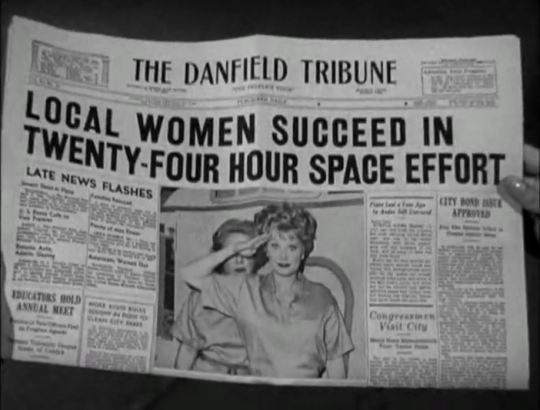
International Day for Human Space Flight takes place across the world on April 12. The day celebrates the first space flight and the first human being in space — Soviet cosmonaut, Yuri Gagarin - on April 12, 1961. Naturally, the space age ramped up on TV as well.
Long before man actually went to space, people wondered what might be up there.

In the 1950′s, America was fascinated by the idea of aliens - mainly Martians. Books, films, and television shows all captalized on this fear of the unknown.
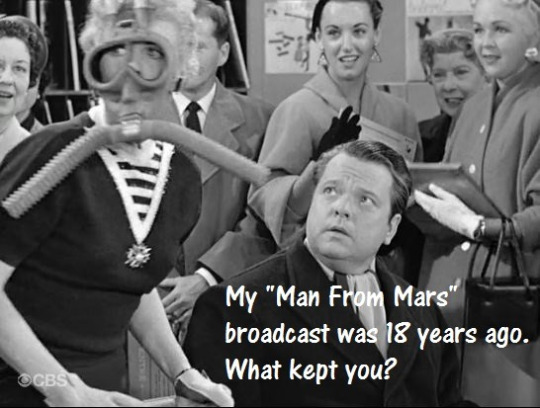
The fascination and fear of outer space can be traced back to “War of The Worlds”, an 1898 novel by H.G. Wells. In 1938, Orson Welles and the Mercury Radio Theatre used it as a basis for a broadcast that many believed to be an actual invansion from outer space.
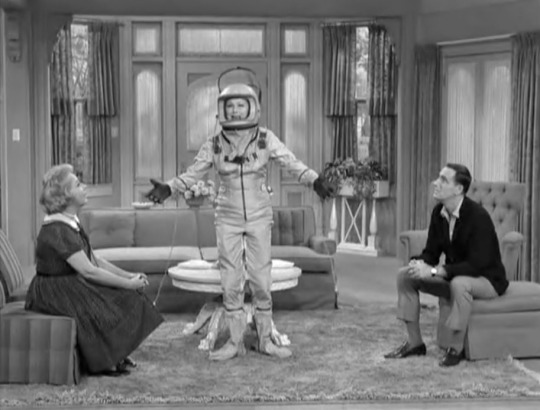
In “Lucy Becomes an Astronaut” (November 5, 1962) Lucy Carmichael and Vivian Bagley successfully spend 24 hours in a simulated space ship as part of a 'Women in Space’ experiment.

Lucy just calls it “the space program,” but her daughter Chris knows that it is actually called NASA – the National Aeronautics and Space Administration. President Eisenhower established NASA in 1958. Alan Shepard became the first American in space in May 1961, just three weeks after Russian Yuri Gargarin. Although the American team planned to launch earlier, delays continually pushed the launch back, allowing the Russian program to scoop the headlines.
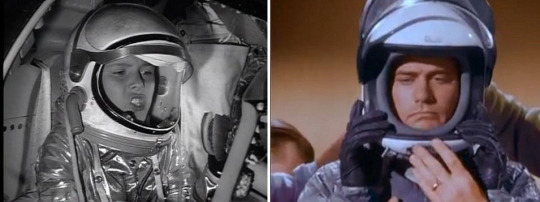
“The Lucy Show” wasn’t the only TV show to use the space program as the basis for storylines. Three months later “Dennis the Menace” aired “Junior Astronaut,” where Dennis and his classmates participate in the 'Junior Astronaut’ savings-stamp program. This episode starred Gale Godon, who would join “The Lucy Show” cast in season two. Star Jay North did a short promotional film for the real-life savings-stamp program to support NASA.

Also in January 1963, “McKeever & the Colonel,” a one-season sitcom that premiered on NBC a week before “The Lucy Show”, explored the topic in “McKeever’s Astronaut,” where a visiting astronaut turns out to be a chimp. Although not in the cast of this particular episode, Charles Lane (Lucy Carmichael’s banker Mr. Barnsdahl) was featured on the series in November 1962. Shirley Mitchell (Lucy Ricardo’s friend Marion Strong) was in the series premiere.
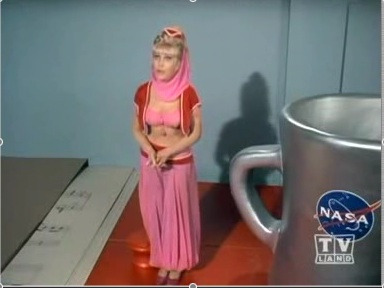
The most famous example of the space program on television is the sitcom “I Dream of Jeannie,” which premiered in 1965. It not only featured astronauts as the central characters, it was set in Cape Canaveral, Florida. After John F. Kennedy’s assassination in 1963, the name was changed to Cape Kennedy. It reverted to Cape Canaveral a decade later, although the NASA facilities are still known as the Kennedy Space Center. Jeannie was played by Barbara Eden, who made her sitcom debut on a 1957 episode of “I Love Lucy.”

Lucy revisited the subject on October 11, 1971 on the “Here’s Lucy” episode “Lucy and the Astronauts”. When Harry and Lucy attend a splash down, she rushes to hug the returning crew before they can be medically cleared, meaning she and Harry must be quarantined with the astronauts.
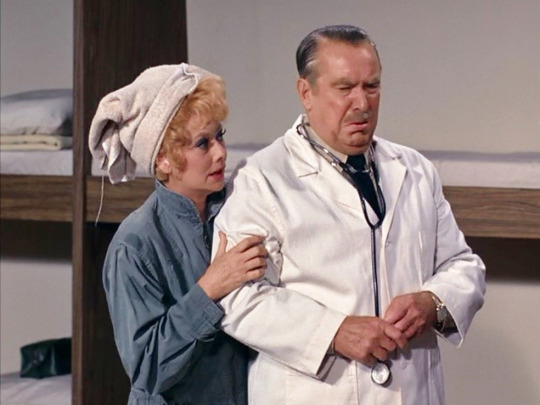
Barely tolerating Lucy in the isolation unit, Dr. Jamison (Roy Roberts) grumbles “We never had this trouble with Neil Armstrong.” Neil Armstrong was the first American astronaut to set foot on the moon on July 21, 1969. Armstrong traveled with Buzz Aldrin on Apollo 11. His famous quote when he stepped onto the moon’s surface was “That’s one small step for man, one giant leap for mankind.”

The episode incorporates stock footage of televised moon walks and splash downs.

This episode was featured in a set of View-Master reels. The View-Master system was introduced in 1939 by GAF, four years after the advent of Kodachrome color film.
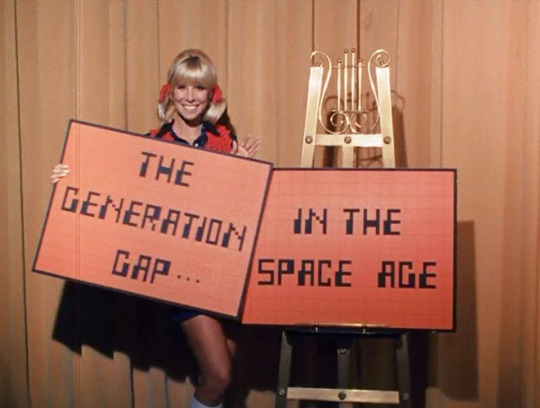
The third act of “Lucy and the Generation Gap” (1969) was set in a futuristic space age in a musical comedy context.
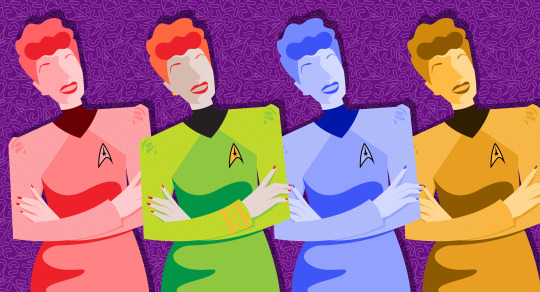
In 1966, Desilu produced a science fiction series that explored life in outer space - “Star Trek”. Each episode started with the iconic phrase:
“Space: The Final Frontier”
Ball was friends with Majel Barrett and thought Gene Rodenberry was a talented creator. She supported the show when the network rejected it. Thanks to Lucy, the now iconic franchise has immeasurably contributed to the popularity of the space program.
#Lucille Ball#Space#Outer Space#NASA#TV#I Love Lucy#The Lucy Show#Here's Lucy#Star Trek#April 12#Astronaut
5 notes
·
View notes
Text
Get out of the way, RFK Jr.
Robert F. Kennedy Jr. is really pissing me off … in a serious sort of way.
Now he’s talking smack about the traitors who are jailed for storming the Capitol building on 1/6, refusing to call them what they are, criminals who were caught seeking to overturn the results of a free, fair, legal and moral election.
Democratic Party officials — many of whom with fond memories of Junior’s father and…
View On WordPress
0 notes
Text
Why Aren't Dems Talking About RFK Jr's Dirtiest Not-So-Secret?

Even on the Kennedy Scale, Robert F. Kennedy Jr's sexual dalliances are legendary — as in the Legend of Sleepy Hollow, the Legend of Legend of Hell House, or the Legend of Chupacabra. It's all awful and somebody ends up dead.
Kennedy's father, Bobby, and uncles, Jack and Ted, were also notorious lechers.
Cruel comparisons were drawn — sometimes by Democrats — between Bill Clinton's conquests like Paula Jones and Marylin Monroe. Monroe was rumored to have been passed around between JFK and RFK, perhaps contributing to her untimely death by a barbiturate overdose in 1962.
RFK is believed to have had affairs with multiple women including, if the rumors are true, Lee Remick and Kim Novak. "Bobby Kennedy came from a family where marital infidelity was not necessarily a virtue, and wasn’t practiced a whole lot," Larry Tye, author of "Bobby Kennedy: The Making of A Liberal Icon," told People magazine in 2016.
And that's the Kennedy Tye described as being "probably the most puritanical and probably the most sanctimonious of Joe Kennedy’s boys."
Sheesh.
The dark joke, oft-told about Ted Kennedy was that he was called the "Lion of the Senate" because "he mates and kills at will." If I had to guess, based on his lifelong love of Mary Jo Kopechne jokes — no, I'm not kidding — Ted probably told that "Lion of the Senate" joke himself on occasion.
On the off chance you've forgotten, Kopechne was the woman Kennedy left to die in the water at Chappaquiddick in 1969. Sure, the "incident" might have forever ruined his presidential ambitions, but at least he got a few laughs out of it over the years.
I'm not a big fan of the Kennedys, as you might have already guessed.
If his dad Robert Sr. was what passed for puritanical and sanctimonious in the Kennedy clan, Robert Jr. apparently has no such compunctions hindering his dating life — but I'd forgotten until just today how deadly Junior's joie de vivre can be.
But some prankster remembered it all too well. It seems that Kennedy's election website is lacking (or perhaps was lacking — maybe the vulnerability is shut down by now) certain safeguards against any old person making up any old fake event and sticking it on the calendar for all to see.
More from 2012:
Robert F. Kennedy Jr.’s estranged wife, Mary, who battled her husband’s rumored philandering by turning to alcohol and prescription drugs, hanged herself in a barn on their Westchester estate yesterday, sources told The Post.
The 52-year-old mother of four — the latest victim of a family dynasty cursed with tragedies — may have taken her own life because she was haunted by her broken marriage, her friends lamented.
Mary Kennedy had previously found RFK Jr's secret diary detailing dozens of his affairs.
If a wife driven first to booze and pills and then to suicide isn't enough to take down a presidential candidate — and I'm aware that these days that maybe it isn't — then I'm not sure what would anymore.
What I'm forced to wonder though is, if Kennedy's candidacy is such a threat to Presidentish Joe Biden's reelection, why they haven't brought out the big gun against him.
Theories?
Recommended: Kamala Harris Will Save Us From This Dire Threat, and I Can't Stop Laughing
P.S. Help PJ Media keep telling uncomfortable truths becoming one of our VIP or VIP Gold supporters. You need independent news and analysis, and we need to keep the lights on. You can join here, and don't forget our massive 50% off SAVEAMERICA promo code.
Recommended
Trending on PJ Media Videos
0 notes
Text
You know… I saw this ad. And I was very confused, because I was pretty sure we didn’t have a Kennedy in office currently, that was interested in equity and other protections… but Robert Reich makes a good point that not everyone would know what RFK Jr is about. Sharing a link to his words here. He does have a few articles behind a paywall but this one should be free.
#robert reich#substack#Robert f Kennedy jr is not liberal#he’s also not what I typically think of as independent#but maybe I’m out of touch re independents
0 notes
Text
Robert Reich has excellent liberal credentials going back decades. He even worked for Sen. Robert F. Kennedy (b. 1925 - d. 1968) in the 1960s.
Dr. Reich urges us not to be misled by Robert F. Kennedy Jr. (b. 1954) who is using his family name to mislead voters. RFK Jr. is no chip off the old block.
Some people think that RFK Jr is like RFK Sr or like JFK. Apart from the DNA, RFK Jr is no more like his father or uncle than Donald Trump is like Abraham Lincoln.
Let me paraphrase Lloyd Bentsen’s remark to Dan Quayle during the vice-presidential debate in 1988: I knew Robert F. Kennedy, and Robert F. Kennedy Jr. is no Robert F. Kennedy.
I worked in Robert F. Kennedy’s Senate office in 1967. It was not a glamorous job. I ran the signature machine, making sure that letters to constituents were lined up properly so that the pen at the end of a long automated arm would write out the senator’s name appropriately.
But I did have a chance to get to see Bobby Kennedy close up. I watched him stand up for economic and social justice. I witnessed him bringing together people of every race and ethnicity — to demand equal rights and an end to the Vietnam War.
Robert Kennedy was a noble and courageous individual. On the evening that Dr. Martin Luther King was assassinated he spoke extemporaneously to a crowd of black supporters in Indiana.
youtube
His son Robert Kennedy Jr has become an anti-vaxxing conspiracy nut and a bigot.
As someone on the autism spectrum I have long been familiar with his totally unsupported contention about vaccines causing autism. But in recent years he has expanded his conspiracy theories into MAGA territory.
Robert F. Kennedy would never have suggested or even thought that a deadly virus was targeted at certain races. He wouldn’t have repeated the trope, dating at least to the Middle Ages, that Jews unleashed a plague on non-Jews.
Robert F. Kennedy Jr. stands for the opposite of what his father did.
In addition to his gonzo bioweapons ethnic conspiracy theory, RFK Jr. has promoted the baseless claim linking vaccines to autism. He’s been a leading proponent of COVID-19 vaccine misinformation, suggesting the vaccine has killed more people than it has saved.
He doesn’t support a ban on assault weapons and blames the rise of mass shootings in America on pharmaceutical drugs.
[ ... ]
Were it not for his illustrious name, Robert F. Kennedy Jr. would be just another crackpot in the growing number of bottom-feeding right-wing fringe politicians seeking high office. But the Robert F. Kennedy brand is political gold.
RFK Jr's relatives have condemned his recent foray into anti-Semitism.
Kennedy family joins White House in condemning RFK Jr’s ‘antisemitic’ Covid conspiracy claim
RFK Jr's vanity presidential campaign, such as it is, has been rather bizarre.
Robert F. Kennedy Jr. press dinner explodes in war of words and farting
Nobody should think that RFK Jr signals some sort of return to Camelot. Nostalgia as politics is a bad idea. It's even worse when a bad actor is exploiting that nostalgia for personal gain.
#the kennedy family#robert f. kennedy jr.#rfk jr#conspiracy theories#anti vaxxers#covid-19#anti-semitism#vaccinations#autism#robert reich
4 notes
·
View notes
Text
Chapter 2 - X-Manson by Doctor Benway - Annotated By Tsar. End of Chapter 2
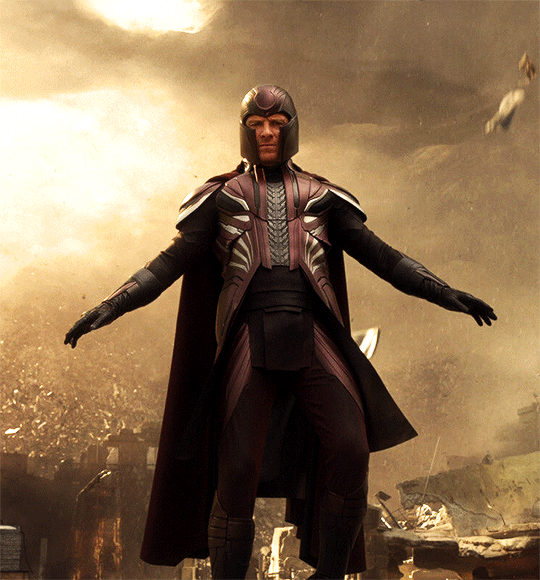
In this portion, we learn a bit more about Robert Kelly and the larger world that this AU resides in. I might argue it's a better world than most, but i will leave that up to your interpretations.
[Shot of a gaunt, handsome, mesmerizing man on the podium, outside on a windy day. He is wearing a dark suit and horn-rim glasses and has John F Kennedy hair.]
[Caption: Senator John B Kelly]
JK: My fellow Americans, we all have a friend who is a mutant, or know a mutant who is a friend of a friend. If you asked, they may have told you that they were happy with their lot but, if they did, ask yourself how you asked them. Did you ask them how it feels to be hated or feared, or did you ask them in the hope of being assured that this is the best of all possible worlds? My friends, this is not the best of all possible worlds. If it was, we would not have had to pass the ERA or the King Amendment or the Chavez Amendment or the Wounded Knee Amendment or the Milk/Moscone Amendment. Anti-mutant bias is one of the last redoubts for those who would preach public hatred in America, who would feed their pride on the blood of the innocent. I ask you go to the polls one last time and vote for legislators who support the MRA. Then, and only then, will we be able to hope that this may one day be the best of all possible worlds.
Okay, there's a lot going on in this speech, but lets hit the major points:
ERA, equal rights amendment for women. Real-world amendment that exists.
The King Amendment. I assume this is about the civil rights protestor Martin Luther King Jr. The implication here is that an official amendment was recently passed that supports civil rights for black people on an actual, constitutional level.
The Chavez Amendment. This one i might be off on, but I think it is referencing Cesar Chavez, the civil and labor rights activist.
The Wounded Knee Amendment. Possibly a bill put into place to protect the human rights of Native Americans, possibly with a focus on protecting tribal lands. I don't really need to explain the refrence to its name. It's pretty plain to see.
Milk/Moscone Amendment: Without a doubt, a reference to Harvey Milk and San Franciso Mayor George Moscone. A bill that protects the rights of gay people, perhaps?
[Caption: Erich Lehnsherr, Vienna]
[Lehnsherr is alone, in a different room than the one shown previously. It might be his office in the Hofburg, or his office in the UN HQ in Vienna. Wherever it is, it's the kind of office that people have when they possess a great deal of power. His wife is nowhere in sight.]
EL: Cape Citadel. Terrible business, terrible.
*First appearance of The X-Men and Magneto was them fighting at Cape Citadel.
Int: How did you become involved?
EL: It was John Kelly. He was in his first term as Senator. He was a junior member of the Armed Services Committee. It was 1964, I believe.
*it was said earlier that xavier didn't purchase the school until '68.
Int: 1963.
EL: I'm getting old. Kennedy had just been buried and the American Navy had begun their criminal applications of nuclear power and weaponry to the potential destruction of their enemies. In the race to develop the submarines, they made errors. Contractors made mistakes that were not caught. They had had one submarine fall apart six months before they lost contact with the Philadelphia off Norfolk. I was at UN headquarters in New York, negotiating details of the transfer of the headquarters to Vienna when Senator Kelly arrived by helicopter and asked for my help.
Int: Did he pressure you in any way?
EL: He told me that 40 young men were about to be crushed to death by the sea. That gave me very little choice.
Int: Why did you go to the base at Cape Citadel?
EL: It was the closest military installation to the last reported location of the submarine. Also, because there was a plutonium processing installation on the site, they had the equipment necessary to contain any spills of radioactive material from the submarine.
Int: It was also a missile base, wasn't it?
EL: It was. Not a place that I would normally have visited.
Int: How did you get in?
EL: John bluffed our way in. He made a big noise about being on the Armed Services Committee and needing to see the base commander. The Americans were very lax in terms of security in those days. When the base commander found out who I was, he very nearly had a heart attack. My actions curtailing the attacks in the Tonkin Gulf prior to the peace settlement in Hue were well known to the US military, as was my opposition to the placement of nuclear weapons in Europe.
Int: But you convinced the base commander to allow you to help.
EL: It took valuable time, but, yes, we did. They had regained contact with the submarine and I was able to put a field around it to prevent any further structural failure. I was beginning to raise it when we were attacked by masked children dressed as bumblebees.

*I mean...they don't not look like bumblebee costumes.
Int: These were Xavier's students?
EL: I believe so, yes. They went straight for the command post where I was concentrating on the submarine, telling anyone who would listen that I was seizing the submarine for some nefarious purpose. Utterly ridiculous, but then it fit perfectly with the rather paranoid spirit of that time. Many in the military blamed me for 'losing' Viet Nam, and now I was going to further emasculate their great republic, or some such thing. Xavier may have influenced them in some way, but I was fighting almost as certainly the limitations of the military mind.
Int: So some of the garrison attacked the command post?
EL: It was chaos. I was in the command post, besieged by the half of the garrison that wasn't guarding us. I tried to put up a shield around the building, but Xavier's students started attacking psionically and with force beams and with ice. I had to stop lifting and hold the submarine in place while I reinforced our defenses. It was a tremendous strain. We held out for almost an hour until the one with the force beams sliced open a tank containing pressurized liquid hydrazine. The entire fight vanished in a fog of explosive gas and I further reinforced the shield just in time for the explosion. It was too much, even for me. I lost consciousness.
Int: The Philadelphia was lost.
*possibly a reference to The Philadelphia Experiment Conspiracy Theory?
EL: After I passed out, the submarine began to sink again. It disintegrated before I could regain consciousness.
Int: What happened at the base?
EL: An unconfined vapour cloud explosion, a detonation of almost nuclear levels of destruction. I was able to protect those inside the command post, but over 500 of those outside lost their lives and over a thousand more were injured. Of those, some 300 lost limbs and senses. Worse, six of those atomic missiles that the phone company built to defend New York had their propellant explode inside their silos and plutonium was scattered over much of the site. I was able to contain most of it, but it might have even been worse, had one of the attackers not erected a wall of ice between the main fire and the majority of the missiles.
Int: What happened after?
EL: They tried to arrest me, in spite of my assistance and my diplomatic passport. I still had enough of my power to prevent them from taking me away, and I was able to fly to safety. There was a congressional enquiry of course, but the officers at the base came through for us. What surprised John was the anti-mutant backlash that struck after. Although the loss of the Philadelphia was the responsibility of Xavier's assault, the general public blamed the loss upon me, identifying me as a foreign threat, as a contagion. John based the rest of his political career on fighting that hatred. I did what I could, but of course the part that I could play was limited.
Int: Why would have Xavier have gone after you?
EL: I am not certain. I have no idea how he knew I was there, which suggests that he had another goal in mind, though I have no idea what it might have been. To put children at such risk, it chills my heart even now. Once he knew I was there, he might have attacked me in revenge, or to deliberately provoke an anti-mutant response. He doubled the size of the school shortly thereafter, and I cannot imagine that the anti-mutant reaction did not assist his recruitment efforts.
It's ironic that part of Xavier's goal in the comics lead to more anti-mutant hysteria following his shitty actions.
#marvel#marvel comics#professor x#xmen#iceman#bobby drake#charles xavier#angel#warren worthington iii#jean grey#hank mccoy#beast#scott summers#cyclops#john kelly#alternate history#annotated fanfiction#magneto#cape citadel#max eisenhardt#erik lehnsherr
1 note
·
View note
Text
Controversial millionaire does what Kennedy Jr. can’t… - August 2023
Dear Reader,
Robert F. Kennedy Junior is public enemy #1 to the Deep State.
His transgression?
Exposing their darkest secrets. He’s shone a light on the origins of the pandemic, vaccine side effects, the crimes of Dr. Fauci, illegal CIA experiments, and much more.
But there’s one secret RFK Jr. will never expose…
An investment secret the elites have kept hidden for hundreds of years.
It has…
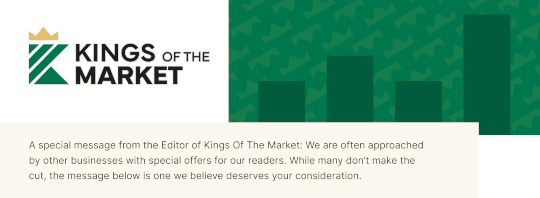
View On WordPress
0 notes
Text
Biden's rival, Robert F. Kennedy Junior, labels F-16s for Ukraine ‘a disaster for humanity’
21vAug 23 , https://www.rt.com/news/581543-kennedy-ukraine-f16-delivery/1
Supplying US-made fighter jets to Kiev would only benefit the defense industry, RFK Jr. says
The looming delivery of US-made F-16 fighter jets to Ukraine will not prevent the “collapse” of the country’s military and will only benefit the military-industrial complex, Democrat presidential hopeful Robert F. Kennedy Junior…
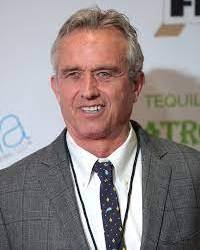
View On WordPress
0 notes
Text
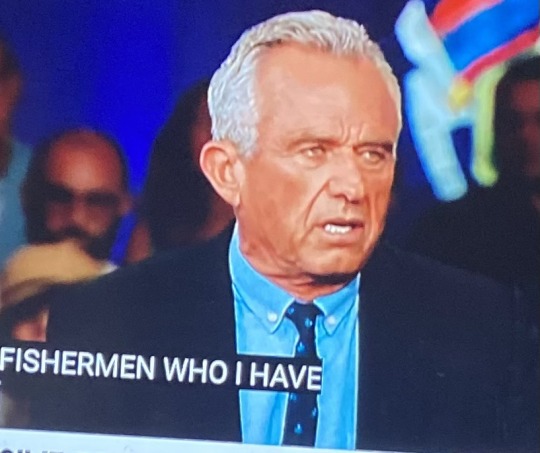
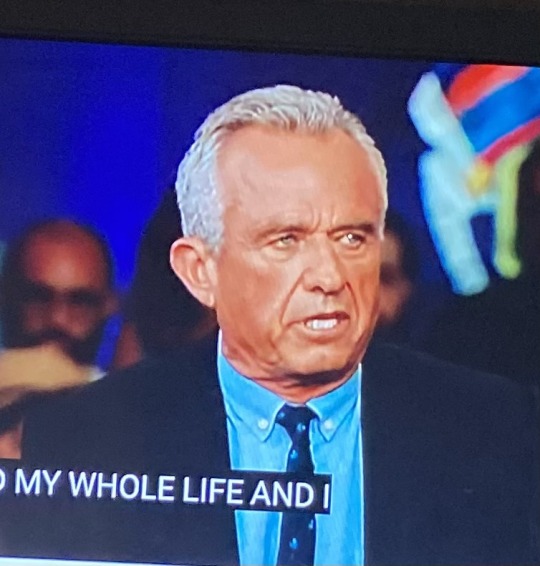
Democratic presidential challenger to President Biden/Robert F Kennedy Junior son of the late Robert Kennedy
0 notes